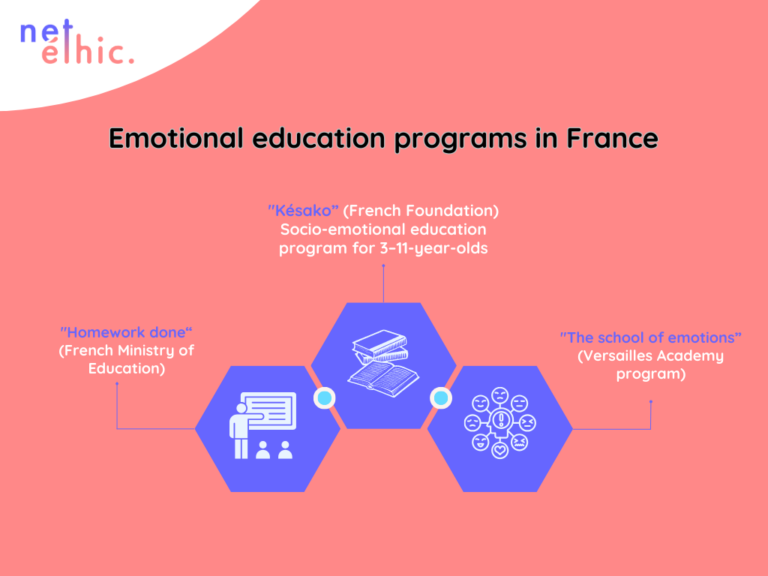The importance of emotional education in preventing bullying at school
Emotional education is much more than just a subject to be included in the school curriculum. It is a powerful lever for student well-being, and by extension, for the prevention of school bullying. Indeed, by teaching students to recognize, understand and manage their emotions, we provide them with invaluable tools for navigating interpersonal relationships in a respectful and empathetic manner.

How emotional education can help create a positive school climate
The importance of emotional education in creating a positive school climate is indisputable. Indeed, such a supportive environment is essential to fostering students’ learning, emotional well-being and personal development :
- Recognize and understand your own emotions : Emotional awareness fosters more authentic and honest communication between students, as they are better equipped to verbalize their feelings appropriately.
- Managing emotions adaptively : Acquiring emotional regulation skills enables students to deal constructively with potentially difficult emotions such as anger or anxiety. This reduces impulsive or aggressive behavior, creating a calmer classroom climate conducive to learning.
- Develop social and relational skills : Students learn to empathize with others and recognize the emotions of their peers, fostering more positive interpersonal relationships.
- Foster mutual respect and tolerance :Students learn to value emotional and cultural diversity, creating an environment where everyone feels accepted and respected for their uniqueness.
- Promote open and constructive communication : Emotional communication skills enable students to express their needs and concerns constructively. This encourages open and honest dialogue between students, reducing misunderstandings and potential conflicts.
- UNICEF study (2022) :
- World Economic Forum Report (2023) :
- DREES study (2023) :
- Emotional education barometer (2023) :

The role of teachers and parents in children's emotional development
- Integrating emotion-related activities and discussions into the classroom :
Teachers can design educational activities that encourage students to explore and understand their own emotions. Classroom discussions on emotions, conflict situations and emotional management strategies enable students to develop their emotional intelligence in an interactive way.
- Modeling emotionally intelligent behavior :
Teachers act as role models for students by demonstrating emotional skills such as peaceful conflict resolution, empathy and open communication. By observing teachers’ positive emotional reactions, students learn to adopt similar behaviors in their own interactions.
- Regular communication with parents :
Teachers can inform parents about the emotional skills being taught in class and the progress their children are making in this area. This communication promotes a coherent, integrated approach to emotional education, reinforcing the lessons taught at home school.
- Parental involvement in emotional support at home :
Parents can encourage their children to express their emotions openly and to seek help when needed. They can also model emotionally healthy behaviors at home, creating a family environment where feelings are respected and discussed.
- Working together to identify and support students in difficulty :
By working together, teachers and parents can spot signs of emotional distress in children and offer them appropriate support. This collaboration makes it possible to identify students at risk of bullying, and to implement effective prevention and intervention strategies.












































